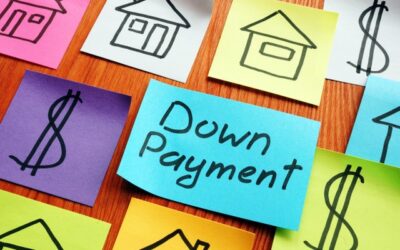Purchasing a home is likely one of the most significant investments you’ll make, so keeping the mortgage lending process running smoothly is important! Here are six tips to follow before applying for a mortgage to ensure you close on the home of your dreams.
Figure Out How Much You Can Afford
Before you apply for a mortgage, you should understand how much mortgage payment you can afford every month. While you could get approved for a big loan for your dream home, it may not be worth it if it drains your savings and ends up ruining your credit score. Aim for a mortgage that won’t keep you up at night and allows you to still make monthly deposits into your savings account.
Keep in mind you likely won’t just have your mortgage payment when you purchase a home, but also property taxes, homeowners’ insurance and home maintenance costs. Be prepared for these costs as well when budgeting to buy a house.
Your mortgage lender should be able to advise you on how much home you can afford, but to figure this out on your own, you can use our free mortgage calculator. Here, you can calculate how much home you can afford, how much down payment you should make and how much your monthly mortgage payment will be.
Check Your Credit Score
Your credit score plays a key role in deciding whether you get approved for a mortgage and the interest rate you will receive. Before you apply for a home loan, check your full credit report to understand your score and correct any inaccuracies. The three major credit bureaus permanently extended a program that allows you to check your credit report weekly for free.
If your score could use a boost, take some time to focus on building good credit before applying for a mortgage. Pay your bills on time, use less than 30% of your credit line and limit the number of credit accounts you open at once.
Get Pre-Approved
This is one of the most important steps to getting a mortgage. Pre-approval is often used interchangeably with the term pre-qualification. While you may hear these terms throughout the home-buying process, they mean separate things.
Pre-qualification means that you satisfy the general criteria for a mortgage and is when a lender estimates how much you may borrow. It is a much shorter process than pre-approval and often does not require you to verify the information on your mortgage application. Brian Beard, assistant vice president mortgage production at Centris Federal Credit Union says that pre-qualification is “quick and simple, but it’s only as good as the information input on the application.”
Pre-qualification can help you start the home-buying process if you don’t know where to start, while pre-approval is best when you know you are ready to buy.
Beard notes, “The biggest advantage to a full pre-approval is that you—as the buyer—have been vetted by the lender so that the seller and their agent know you’re serious and that the loan should likely go through.”
But what do you need to apply for a mortgage pre-approval? Because pre-approval entails verifying your income, employment, assets, debts and credit score, you must provide your lender with documents like W-2s, paystubs and more to be pre-approved. If you qualify, the mortgage lender will write you a pre-approval letter that states the loan terms you qualify for.
Find a Loan Type That’s Right for You
Mortgages do not come in one-size-fits-all. Every situation is unique and requires a different type of mortgage. That’s why one of the most important steps to take before applying for a mortgage is to do your research. Choose a lender that shows you all your options before going straight to a standard 30-year mortgage—there may be better loan types for you!
Brian emphasizes that “a good loan officer will give you choices. In the end, it’s your choice and your financial situation, but the loan officer should be able to provide you with the pros and cons to each choice that you have.”
- If you’re a first-time home buyer, ask your lender what first-time home buyer programsthey offer. These programs often provide reduced down payments and increased financing amounts.
- An FHA loancould also be a great option.
- If you’re a veteran, VA loanscould provide you more favorable terms.
- If you’re looking for a home in a rural area, check out USDA loans. While many think these loans are only for farmland, the USDA provides these loan opportunities to low and moderate-income rural Americans.
Wait to Make Big Purchases or Life Changes
If you are thinking about switching jobs, starting a business, cosigning on a loan or opening a new credit card, it’s best to wait until after your mortgage has closed to make those changes. Why? Because big life changes like switching jobs or opening a new line of credit may disrupt your income, debt-to-income ratio and credit score, causing uncertainty for your lender.
To best prepare for a home loan, it’s important to leave your credit alone as much as possible around the time you’re applying for a mortgage and finalizing the loan. A common tip when going through the mortgage process is to wait until after closing to co-sign on other loans. You’ll also want to hold off on making big purchases, such as furniture and appliances, on credit.
Understand Your Mortgage Terms
Knowing the ins and outs of your mortgage loan could save you money and hassle. Do your homework to understand the interest rate, monthly payments and any fees associated with your mortgage before you close.
If there is something about your mortgage that you don’t understand, be sure to ask your mortgage lender for clarification. You can also use our free Centris Financial Wellness Center to gain a basic knowledge of mortgages and the terms associated with them. Or listen to our podcast episode with Brian Beard, “It’s a Relationship, Not a Transaction.”
Applying for a mortgage is a big deal, and there are steps you can take to make sure the home-buying process goes as smoothly as possible. If you’re looking for more advice on mortgages and easy ways to get a home loan, our experienced mortgage team is here to help! Visit our website, give us a call at (402) 334-7000/(800) 334-2328 or stop into any of our 15 branch locations to find a mortgage professional near you!
Federally Insured by NCUA. Equal Housing Lender.




